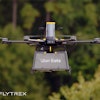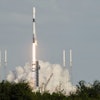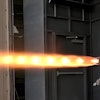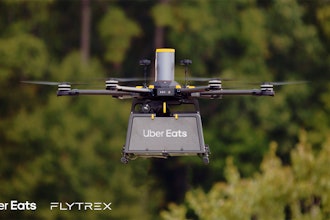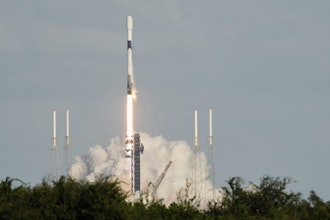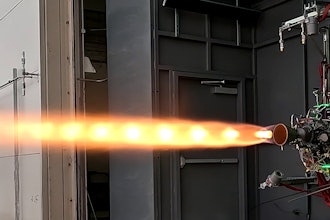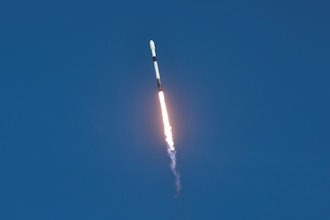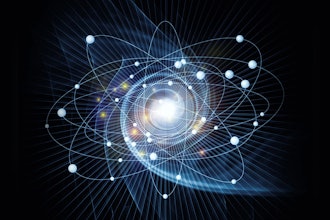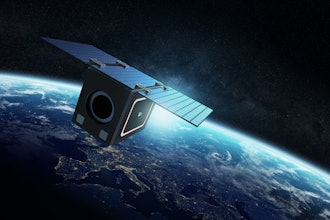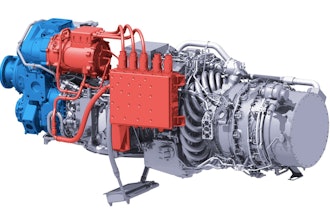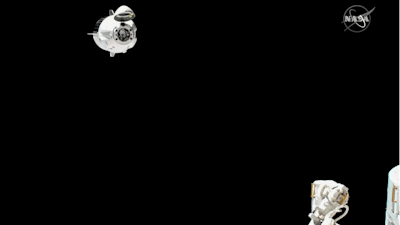
SpaceX's swanky new crew capsule returned from the International Space Station to an old-fashioned splashdown in the Atlantic on Friday, successfully ending a test flight that could lead to astronaut rides later this year.
The Dragon capsule undocked from the orbiting lab early Friday. Six hours later, the capsule carrying a test dummy parachuted into the ocean, a couple hundred miles off the Florida coast.
It was the final hurdle for the six-day demo, a critical prelude to SpaceX's first flight with astronauts as early as summer. While improvements still need to be made, the company aims to fly NASA astronauts Bob Behnken and Doug Hurley on the next test flight.
Astronauts have not launched from Florida for eight years, and NASA is eager to end the drought and reduce its costly dependence on Russia for space station trips.
SpaceX employees cheered and applauded at company headquarters near Los Angeles when the Dragon's red and white parachutes popped open. NASA televised the descent live, the dramatic views coming from a plane. The crowd went wild once the capsule splashed down and was seen floating upright.
"Just amazing. I can't believe how well the whole mission has gone" with all major milestones met, said Benji Reed, SpaceX's director of crew mission management.
It was the first time in 50 years that a capsule designed for astronauts returned from space by plopping into the Atlantic. Apollo 9 — which orbited Earth in preparation for the moon landings — splashed down near the Bahamas on March 13, 1969.
Space station astronauts have been stuck riding Russian rockets since NASA's shuttles retired in 2011. NASA is counting on SpaceX and Boeing to start launching astronauts this year. SpaceX — which has been delivering station cargo for years — is shooting for summer.
NASA Administrator Jim Bridenstine was ecstatic following splashdown. All this is "leading to a day where we are launching American astronauts on American rockets from American soil," he said.
A pair of recovery ships was stationed in the Atlantic well before splashdown and quickly moved in, lifting the capsule from the water within an hour. The capsule is expected at Port Canaveral on Saturday night. Splashdown will occur much closer to shore once astronauts start flying.
Astronaut Shane Kimbrough, part of the recovery team, said it was incredible watching the splashdown up close. The capsule had brown scorch marks from top to bottom, but otherwise looked fine.
Canadian space station astronaut David Saint-Jacques was the first to enter the Dragon capsule and the last to leave this week. He found it "very slick" and called it business class.
Next up is Boeing.
Boeing plans to launch its Starliner capsule without a crew as early as next month and with astronauts possibly in August. The Starliner is designed to land on land — in the U.S. Southwest.
NASA awarded the first contracts in 2014 to SpaceX and Boeing, now totaling about $8 billion. This first SpaceX test flight opens a new era, Bridenstine said, with new technology and new business approaches.
SpaceX acknowledges some capsule systems need more work before Behnken and Hurley climb aboard for liftoff, as early as July. Vibration, acoustic and other measurements were taken throughout the recently completed flight, not only of the capsule but also the mannequin — named Ripley after the lead character in the "Alien" films — which was strapped into one of the four seats.
Hurley tweeted: "It's been a joy to watch the teams in action and I can't wait to climb on board the next one!"
A small blue and green plush toy shaped like Earth — which SpaceX chief executive Elon Musk termed a zero-gravity indicator — was left behind on the space station. Behnken and Hurley will bring it back on their flight.

